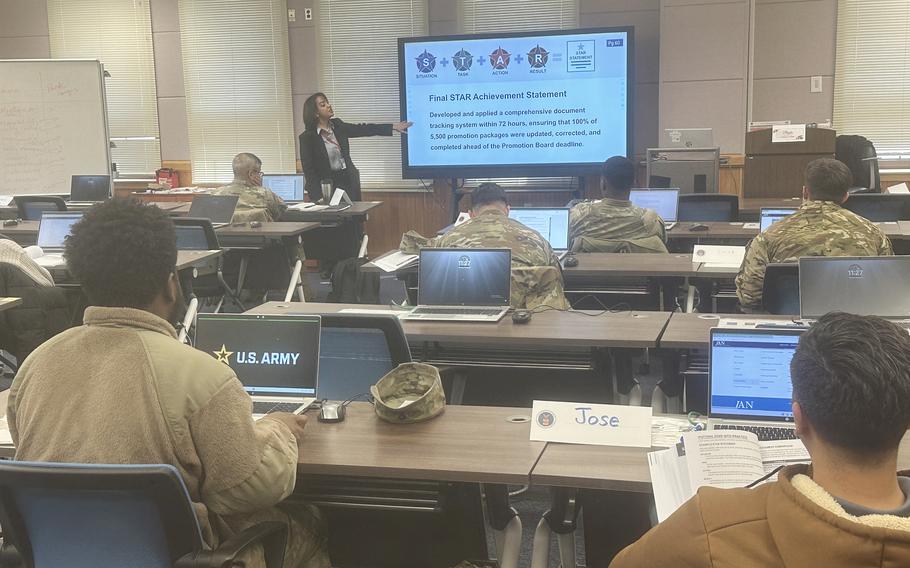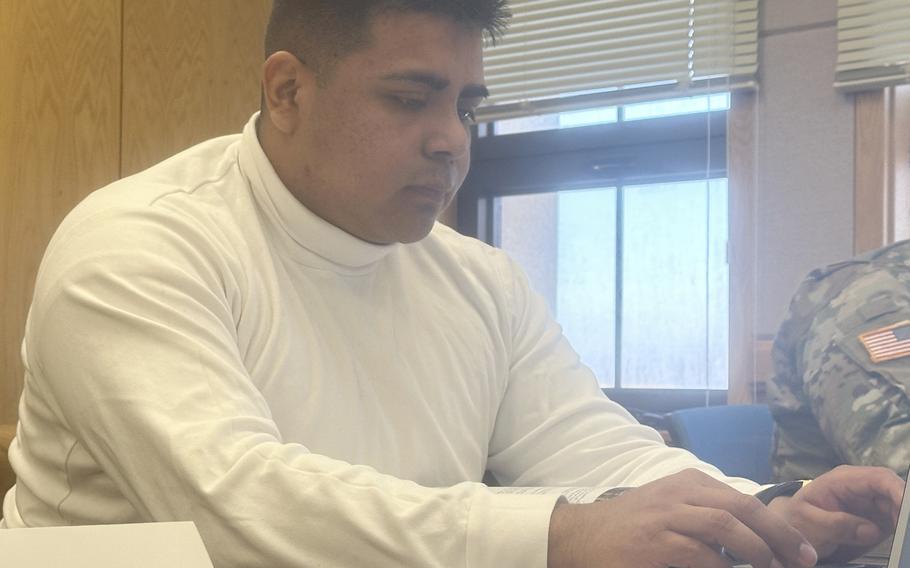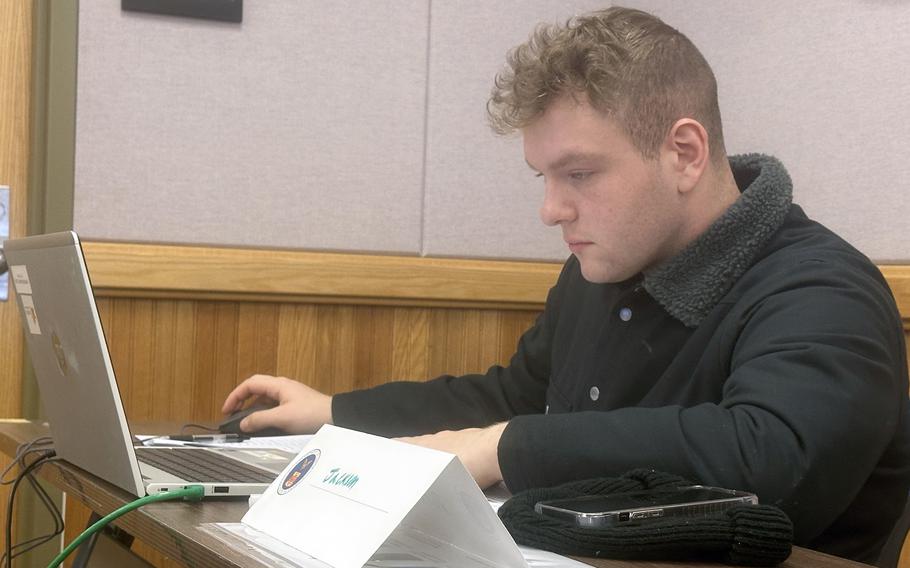
Service members take a Transition Assistance Program course in Maude Hall at Camp Humphreys, South Korea, on Feb. 20, 2025. (Eric Mendiola/Stars and Stripes)
CAMP HUMPHREYS, South Korea — During a recent class at Maude Hall on the largest U.S. military base overseas, Spc. Ulises Alcalde listened to a lecture on employment fundamentals, part of his preparation for leaving active duty.
Alcalde and about 20 other service members were attending the Transition Assistance Program, or TAP, a federally mandated initiative designed to help troops enter the civilian workforce.
The program, which begins up to a year before service members separate, covers essential topics such as résumé writing, salary negotiations and navigating Veterans Affairs benefits.
“I’m excited but also a little stressed because being a civilian is different,” Alcalde told Stars and Stripes during a class break on Friday.
He will have spent four years on active duty.

U.S. Army Spc. Ulises Alcalde takes a Transition Assistance Program class in Maude Hall at Camp Humphreys, South Korea, on Feb. 20, 2025. (Eric Mendiola/Stars and Stripes)
“Here in the Army, we have a guaranteed job, while being a civilian it’s not guaranteed,” he said. “It’s a high-competition area, but the classes are preparing me.”
Service members entering the civilian workforce now are stepping into a relatively strong job market. The U.S. Bureau of Labor Statistics reported a veterans’ unemployment rate of 3.8% in January, the highest since November 2021 but still slightly below the general unemployment rate.
Overall, the U.S. unemployment rate stood at 4% in January, down from 4.2% in November, reflecting what economists consider full employment — a market in which wages and job conditions tend to favor workers.
Still, many veterans face hurdles after years outside the civilian workforce — if they were ever part of it at all.
“Whatever your post-military goal is, we want you to walk away with an actionable plan,” said John Wright, a transition specialist at Camp Humphreys. “ ‘I want to go to college and get a job’ — those two keywords come with a lot of questions.”
Alcalde, of Morgan Hill, Calif., is a combat medic with the 2nd Infantry Division, Headquarters and Headquarters Company, 194th Sustainment Support Battalion. He is taking the required employment fundamentals course, which includes guidance on crafting résumés for both government and private-sector jobs.

U.S. Army Spc. Jackson Gold, a signals intelligence analyst, takes a Transition Assistance Program course in Maude Hall at Camp Humphreys, South Korea, on Feb. 20, 2025. (Eric Mendiola/Stars and Stripes)
TAP was introduced in 1991 and has been mandatory since 2011.
Beyond the required course, Alcalde said he plans to take an optional advanced résumé workshop for a more competitive edge.
“Building a résumé itself isn’t as easy as I thought, even with the class I already took,” he said. “So, I will definitely be taking advantage of the other class.”
That class, Advanced Résumé, offers service members a chance to work closely with certified counselors who provide in-depth guidance on résumé writing. The workshop is available in group sessions or one-on-one settings.
Wright said the advanced class has seen growing interest among service members.
“Our counselor team is absolutely dynamic,” he said. “They are taking these individuals who are looking for that help, and that help is leading to results. They’re getting jobs, and that word of mouth is spreading back.”